
[WEBINAR] Intermarriage: Is this the Worst Sin a Jew Can Do?
Rabbi Enkin presents a no-holds-barred webinar on intermarriage and conversions for the sake of marrying a Jew.

Rabbi Enkin presents a no-holds-barred webinar on intermarriage and conversions for the sake of marrying a Jew.

A mysterious interaction between Yakov and an angel reveals an eternal truth about the fate of the nations of the world.

There is so much we can learn from our forefather Jacob, including how to make a vow with the Almighty!

Discover what the Torah has to say about polygamy, what the rabbis have say, and yes, there are situations in which polygamy is permitted even nowadays.

In Judaism, a wedding is not just a party. Marriage represents continuity from Abraham the first Jew.

Rabbi Enkin explores anti-Semitism from Biblical times until today, focusing on the relationship between Jews and Gentiles througout the ages.

When seeking a spouse, be sure to look for family values and attributes such as kindness, patience, humility, and generosity. Don't be blinded by good looks and bank accounts.

Whatever your belief in angels might be, the most important thing is to remember that there is a Creator of all of us who wants a direct and personal relationship with us ,without any intermediaries!

A Jew is supposed to follow the 'Abraham model' when hosting guests. In fact, Abraham’s open tent on all sides is commemorated at every wedding ceremony!
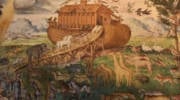
While most animals entered the ark two-by-two, each kosher species received 14 boarding passes. Why?

Although most religions believe that in order to find favor with God and gain entry to Heaven one is required to convert to that religion, Judaism completely rejects such an idea.

Yom Kippur is a day of opportunity, potential, greatness, forgiveness, and intimacy with the Creator. It is the day when we start our lives anew.

The entire United with Israel family wishes you a happy, healthy, sweet New Year!
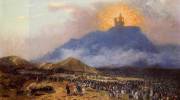
There are repercussions for our actions. But to lose hope? To despair? To walk away? Never! We can never let that happen.

Sensitivity and care for the less privileged is clearly demonstrated in this week's Torah reading, which also underscores the message that G-d appreciates our efforts in performing His commandments.

When you have a sincere desire to do good deeds, God gives you credit for performing them, even if circumstances beyond your control prevent you from actually doing them.

The vessels for the Third Temple Vessels are being constructed right now. Don't miss this video!

More often than not, people hide their mistakes when, in hindsight, something went wrong. Not Moses. He admitted the truth voluntarily.

In this week's Torah portion we read about a census that was taken of the Jewish people. This is the second census in the Book of Numbers, hence the name.

Let’s not wait for something tragic and painful to wake us up to the Word of God.

This week's Torah reading teaches the importance of humility and warns against lusting for power, as Korach did.

The lesson of the 10 evil spies is one that should be internalized daily in each and every one of us, which is: Don’t be a pessimist!

As we pray at the Western Wall and gaze up at the Temple Mount, we cannot help but wonder why there is no Holy Temple today. Does it have anything to do with the slanderous report of the spies in the times of Moses?

The commentators emphasize that the people who complained to Moses were 'exceptionally God fearing,' and this comment is worthy of some elaboration.

This week’s Torah portion is Behalotecha (Numbers 8:1–12:16), and in it we read about many of the utensils of the Temple, including the Ark of the Covenant.
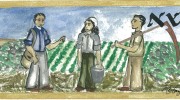
A Nazirite is a man who decides to take upon himself a number of stringencies in striving for a higher level of holiness.

Every individual has a 'flag' representing his or her unique mission, purpose, or talent. What does your flag look like?

No matter how badly Jews have been beaten, tortured, exiled and abused, we must know that each and every one of us has tremendous value.

Each year, tens of thousands of Jews flock to Meron in northern Israel for Lag b'Omer, the Jewish festival of fire!
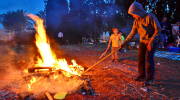
There are several fascinating explanations regarding the meaning of Lag b'Omer and why 'holy fires' play such a prominent role.

The central theme of this week's Torah portion is that of the Sabbatical year, known as "Shemitta". Every seven years the land of Israel must lay dormant -- no agricultural work may be performed on the land. Right to this very day, the rules of Shemitta are observed and many Jewish farmers do not plant, prune, or even harvest. After seven Shemitta years -fifty years in total - was the "Yovel" - the Jubilee year.

What do the special laws regarding the priestly tribe have to do with leadership?

Nobody is immune from temptation, ever, and the only way to consistently live a moral, ethical life is to observe the commandments.

Never again will Jews be defenseless against those who would attempt to annihilate them!

We don't have to wait until Memorial Day to express gratitude to those who paid the ultimate price to establish and protect the Jewish state.

Israel's Independence Day is observed immediately after Memorial Day to remind us that without the sacrifice of Israel's fallen heroes there would be no triumphant future.

When giving charity, the most important principle is to respect the feelings and dignity of the people involved. Never embarrass anyone!

How much effect could just one act of religious observance have on the individual, the collective Jewish people and the world?

The idea of perfecting and partnering with God in creation is a recurring theme. God didn’t give us a perfect world, but rather, He gave us a perfectible one.

Adar is the most joyous of months, as the Talmud teaches, "When the month of Adar enters we increase our joy."

God is constantly communicating with us, but we must tune our spiritual radios to the correct station to 'pick up the frequency.'

A timeless verse from the Book of Esther continually challenges us to step up when we are called upon to take action!

From the Torah’s perspective, a great leader is one who has no ego and is able to “lower” himself to care for those who are “beneath him.”

The word for "weaken" in Hebrew is "Tash." Take a three-cornered cookie, each representing one of the three forefathers, and you have "Haman tash" - "Haman was weakened."

Jews celebrate the Purim holiday with costumes, parties, food and drink. Yet the festivities are meaningful and permeated with spirituality.

The Torah teaches us that the key quality all great leaders must possess is the ability to let go of their egos and fight for the greater good, even at their own expense.

Don't just 'talk the talk,' but follow through and 'walk the walk' - one step at a time.

This week’s Torah portion is 'Ki Tisa' (Exodus 30:11–34:35) and it is action-packed, most notably, with the episode of the Golden Calf.

Moses teaches us that no matter how committed we are to an opinion or position in an argument, the relationship is always more important than the disagreement.

Only positive use of our mouth and tongue is considered true speech.

There is the bare minimum, and there is 'beauty.'

Our sages teach that clothing should have a sense of honor and glory -- we should not just wear 'anything.'

In this week's Torah portion, we learn a powerful lesson from the Biblical laws pertaining to slavery.

There has never been a Jewish court in history that took out an eye from one who caused another to lose an eye, or cut off the hand of someone who caused another to lose a hand.

This week’s Torah portion is 'Yitro' (Exodus 18:1–20:23), and in it we read about the Ten Commandments.
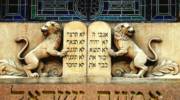
What's the difference between the 10 Commandments given at Sinai and the Seven Noahide Laws?

Jewish wisdom is full of insightful comparisons between the Jewish People, and trees and fruit.

As we learn from the behavior of the Egyptians, if we cannot control our anger, we may very well bring a plague upon ourselves.

Your dedication to fulfilling God's will, not your own, is the deciding factor when the chips are down.

Names play a prominent role in the book of Exodus in general, and in this week’s Torah portion in particular, providing an excellent opportunity to discuss Jewish naming traditions.

Don’t ever underestimate the value of even small gestures! God takes everything into consideration.

What was it about wagons that convinced Jacob that Joseph was really alive?

Once Joseph rose to power and was essentially in control of Egypt, why didn’t he write home?

While each day we express our appreciation for life's blessings, Chanukah is the ideal time for the People of Israel to celebrate and say: THANK YOU!

Joseph and his dreams are discussed in the Torah portion Vayeishev, which always either precedes Chanukah or falls during the holiday.

Enjoy your vacations, but remember: They complement life, they don’t replace it.

Rabbi Enkin presents an in-depth look at the fascinating Torah portion of "Vayishlach", complete with traditional commentaries from the Talmud, Midrash, Kabbala.
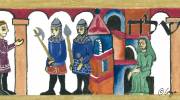
Shimon and Levi felt the pain of others. This value is an integral characteristic of the Jewish people. Who could better serve as role models and educators?

Jacob faced adversity head on, while his twin brother Esau pointed the finger at everyone but himself.

Abraham passed the greatest test in the Torah by refusing to follow the crowd and heeding God's word instead.

Why can't an Ammonite or Moabite "enter the congregation of God" and become part of the Jewish people?

Rabbi Enkin presents a comprehensive, interesting webinar on "hachnasat orchim" - the mitzvah of welcoming guests.

The role of wine and alcohol in Judaism is a fascinating subject. While a central feature of Shabbat, holidays and all lifecyle events, there are drawbacks.

The Festival of Sukkot allows us to take a step back, to appreciate the material possessions that God has given us and to understand how to use them for spiritual means.

Until Jacob, no one in history ever had built huts for their cattle! Until then, cattle had to brave the elements. Whether it was hot or cold, dry or rainy, the cattle were simply always outdoors, always exposed.
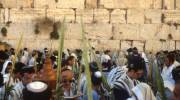
Discover how Sukkot is a unique, meaningful and fun holiday that benefits the entire world
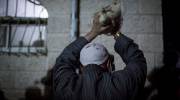
Using money instead of a chicken to perform Kapparot - a pre-Yom Kippur atonement ritual - is a more attractive, cleaner and less expensive option.

Regardless of the righteousness of individual Jews, the power of a unified Nation of Israel is unparalleled!

The metaphor of the eagle in this week's Torah portion reminds us that God is our Father and he looks out for our best interests.

Sin is a slippery slope. Eventually a person rationalizes that which had originally been unthinkable.
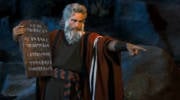
Moses was the loving leader and national father par excellence. Why the total change in character?

As the Talmud itself says, the episode of the rebellious son never happened. So why did God include it in the Torah?

As the saying goes, ensure that your own house is in order before proceeding to tell others how to run theirs.

The mitzvah of charity goes on the Eternal ledger and stands as a merit for us in this world and in the next.

In this webinar, Rabbi Ari Enkin discusses the Torah portion of "Ekev" (Deuteronomy 7:12 - 11:25) which deals with the concept of God testing us.
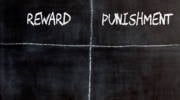
The promise of reward for observing the Torah seems to contradict an explicit teaching of the Talmud. So how do we reconcile these two teachings?

Though the word 'Eikev' is essentially not translatable on its own, it can be understood as meaning 'on condition.'
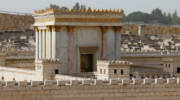
The Temple’s bricks and stone have been destroyed, but the Divine Promise still stands. The Temple will be rebuilt and until that day Zion will never be forgotten.

Rabbi Enkin presents a somber but inspirational, eye opening webinar about the saddest day on the Jewish calendar.

When it comes to Torah law, justice must be done, regardless of whether the amount in dispute is big or small.
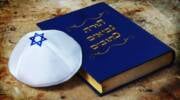
To conclude the Book of Numbers, Rabbi Enkin presents a special class that "scrolls" through a number of interesting topics!

There is no embarrassment in making mistakes - unless we fail to learn from them.

This week’s Torah portion is “Pinchas” (Numbers 25:10-30:1), and it we read about the zealot by that name.

Rabbi Enkin explores Jewish concept of reincarnation from both a scriptural and kabbalistic perspective.

Why did God change his mind and allow Bilaam to curse the Jewish people?
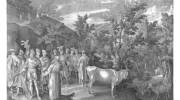
The Torah portion in Israel of “Balak” (Numbers 22:2-25:9) teaches how Balak, King of Moab, hired Balaam to curse the Jewish people after realizing that he could not destroy them militarily. God plays a trick and instead of cursing the Jewish people Balaam ends up blessing them! Rabbi Enkin’s informative webinar focuses on the nations... Read more »

Rabbi Enkin covers many topics from this fascinating, action-packed Torah portion, with special emphasis on the episode of Moses hitting the rock.

What can we learn from the Torah reading of Korach, who led a rebellion against Moses?

Rabbi Enkin examines Korach's evil power struggle with Moses and other destructive Jewish fights, but also explores some "good" Jewish arguments throughout the ages.

Why did Caleb go to Hebron to pray for Divine assistance? He knew right from wrong.

Rabbi Enkin explores the fruits of the land of Israel, including the seven species, from ancient agricultural times to modern day Israel and everything in between.

Rabbi Enkin discusses music in the Temple, the synagogue, and modern-day music trends in the Orthodox Jewish world.

That which we think should happen — based on natural and logical assumptions — is not necessarily what will be.

Rabbi Ari Enkin presents a multi-faceted, information-packed webinar covering the Torah portion of Numbers, Jerusalem Day and the holiday of Shavuot.

Rabbi Enkin delves deeply into the mysterious Torah law about lending with interest, plus few other lesser-known business laws as well.

The Jewish people were not going to be in the Land of Israel for another 40 years. Why the urgency?

Rabbi Enkin explores some of the major ethical works that Judaism has produced, including the famous Ethics of the Fathers.

Discover what some of the lesser known Torah commandments are really all about..

We don’t get everything we want exactly when we want it. Everything in the right time.

What we will deal with in this article is the issue of adultery and the offspring that results from such a relationship.

Rabbi Enkin deciphers, demystifies and explains Jewish laws of purity, many of which are practiced only when the Holy Temple stands.,

It was precisely birds that were chosenfor this particular sacrifice, as birds are always 'chirping,' ie. talking.

One of the most fun songs for children at the Passover seder is "Chad Gadya," meaning "One Little Goat." But for adults, there are some profound interpretations.
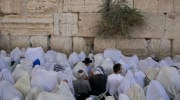
Be sure to watch Yishai Fleischer's eye-opening film, "Under the Prayer Shawl - Secrets of the Priestly Blessing."

Passover is a time to free ourselves from the "bondage" of every day living and "bond" with our Creator and those whom we love.
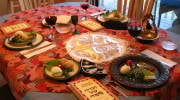
In this piece, Rabbi Ari Enkin gives a crash course on the Seder rituals and the basic meaning behind each of them.

Matzah is a dual symbol. It is called the Bread of Affliction, but it also represents freedom. You might think they are opposite ideas, but they are not.
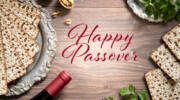
Rabbi Enkin presents an "Everything-You-Need-To-Know-About-Passover" webinar with an emphasis on lesser-known customs and practices.

Why is the performance of so many commandments necessary in order to help us remember the Exodus from Egypt?

This week’s Torah portion is 'Tzav' (Leviticus 6:1–8:36), and it continues with the details of the sacrificial services and offerings in the Holy Temple.

A Jew must remember that while his celebrations might be personal, they can never be totally disconnected to the nation

Since sacrifices may very well have been the original "Jewish foods," this webinar explores Jewish foods in great gastronomic detail.
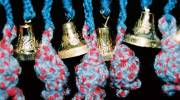
Many commentators have discussed the ban on rips and tears in the priestly garments and what they represent.

Learn about the "Four Special Sabbaths" which fall during the pre-Passover period, and various other distinctive Sabbaths throughout the year.

Rabbi Enkin takes a fascinating look at the entire story of the Golden Calf and presents meaningful lessons that we can implement in our daily lives.

When a person is happy and optimistic their entire outlook is one of happiness and positivity. Good things will happen!

Through an extra Sabbath Torah reading before Purim, the Jewish people remember the evil who attack God.

It's time for Purim, the holiday on which the Jewish people celebrate deliverance from the evil plot of Haman.

Rabbi Enkin takes an in-depth look at the Tabernacle, Holy Temple and modern-day synagogues.

Why does it matter that the ark was made of gold and wood?
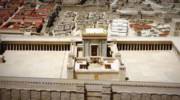
May we merit that our homes be found a worthy place for God to dwell, especially in this era where He has no central or permanent home.

Rabbi Enkin discusses lesser known Torah laws such as slavery, unique kosher laws that go beyond eating and drinking, the ban on going to secular courts (instead of rabbinic courts), and much more!

Have you ever given the 'shirt off your back' to someone? The Torah teaches us that this type of self-sacrifice is what it takes to make a marriage strong!

Nobody should be a slave or endure unspeakable hardships, but when we suffer, God suffers along with us.

Rabbi Enkin explores fascinating issues related to conversion, including the controversial modern-day question of "Who is a Jew."

If criticism must be offered, remember to do it in the right way, so your words enter the heart of the recipient!

Tu B'Shvat, Israel's New Year for Trees, is very unique and teaches us many deep lessons that we can apply to our everyday lives.

Rabbi Enkin takes you on a fascinating journey through the wilderness, exploring the miracles performed for the Jews during their forty years in the desert.

We have to realize that nothing in life is a coincidence. There are many invisible miracles that God does all the time!

Rabbi Enkin gives a fascinating class about the final three plagues, the Passover sacrifice and the Exodus of the Jewish people from Egypt.

Jews must show generosity and kindness to all, as we learned from our forefather Abraham, and we must fix the evil of Egypt and Sodom.

Don't get caught off guard: God can change our fortune in a split second.

Rabbi Enkin gives a fascinating presentation of the Ten Plagues from the perspective of Scripture, Talmud, and most of all, Midrash.

Yes, we have to pray when things are going bad…but we have to keep up the same momentum even when things are going good!

We all know that Moses was the great leader of the Jewish people and the greatest prophet of Israel. So why do the sages say that Aaron was equally great?

We don’t always know what is actually good. Nor do we know what the future will bring. Always think positive, and you will often see positive!
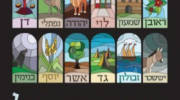
Rabbi Enkin explores Jewish names, dress, languages and other trimmings that have kept Jews 'Jewish' throughout the many years of exile.

Modesty is the top attribute for a Jew and for a leader. Only with a strong sense of modesty can one fight off all the temptations of power and corruption.
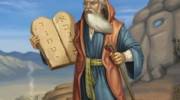
Why did God choose Moses to serve as leader of the Jewish people?

What does Judaism say about DNR, hospice care, euthanasia, organ donations and cremation?

The Torah teaches us this week that we must always do the best we can to save others from embarrassment.

The blessing in the Torah 'may G-d make you like Ephraim and Menashe' really means 'may you not only meet, but may you also exceed your potential and expectations.'

In this article, I would like to focus on our forefather Jacob's arrival in Egypt.
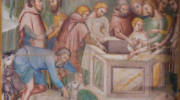
Rabbi Enkin explores the emotional encounter and reunion of Joseph and his brothers, family relationships, fulfillment of prophecy, and the nation's journey down to Egypt.

The menorah, a seven-branched candelabrum, is the oldest symbol of the Jewish religion and modern symbol of the State of Israel. A nine-branch variation is used for the observance of Chanukah - the Festival of Lights.

The Torah teaches us that when someone's reputation is unjustly damaged, we must go the extra mile to restore their good name.

We can affect change in this world and influence the order of events. Our good deeds affect change for the better, and our misdeeds can affect change for the worse.

Ever wonder which miracles are from God and which miracles might be mere coincidences?
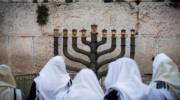
On Chanukah there is a power in the air that we breathe, which has the ability to help us emerge victorious in the personal battles we face on a daily basis.

All year round, we must battle the forces of darkness by adding more and more light to the world. Chanukah reminds us that this is a battle we must face every day.

Rabbi Enkin weaves together traditional Jewish sources along with secular, historical ones to offer a slightly "different" perspective on the Chanukah story.

We must remember that sometimes the challenges that we face are trampolines to get us higher than before.

Chanukah teaches us not to forget that God is responsible for everything that happens around us.

Because Chanukah usually occurs in December, it is sometimes thought of as the "Jewish Christmas." It isn't, of course. But what's it's really all about?

We must make heroic efforts not to harm or insult others when delivering unwelcome news or unfortunate tidings.

Rabbi Enkin explores various concepts in Jewish business law, complete with sources and precedents from both the Torah and Talmud.

The only way to weather life's storms is to remember that God has a plan, even when curve balls come down the pike.
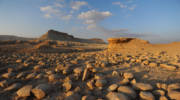
When the Jewish people are united there is nothing stopping us. Unity is always the key to victory!

Contrary to our natural intuition and Western mentality, the Torah permitted marriage to more than one wife, a practice the rabbis later outlawed for practical considerations.

Rabbi Enkin delves into some of the most famous (and violent) episodes of sibling rivalry in the Bible. And some advice for you, too!
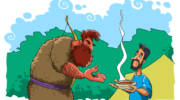
There are differences between the firstborn of a father and the firstborn of a mother. The importance of a firstborn extends to animals and even to fruit.

We are all born with negative traits, however, our mission is to channel them for the good, as did Jacob and King David.
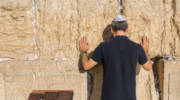
Never give up on people who have strayed from the right path. If Ishmael came back, anyone can! By Rabbi Ari Enkin, Rabbinic Director, United with Israel The week’s Torah portion is “Chayei Sara” (Genesis 23:1-25:18) and in it we read about the death of Sara, and later, at the end of the reading, we... Read more »
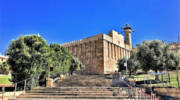
Hebron is the Jewish people's second holiest city. King David began his reign in Hebron. So much history, so much holiness!

Discover how the timeless teachings of the Bible on dating and marriage are as relevant today as in ancient times.

An inspiring, informative webinar on why Jews should make Aliyah, how to make Aliyah, and what life is like in Israel after making Aliyah.

This week's Torah portion is Lech Lecha, where God promises the land of Israel to Abraham and his descendants.

Abraham joined the War of the Kings when it became a matter of God's honor.

Steps you can take to make your aliyah successful.

Although there's no denying that Jews and meat have a "loving relationship," this class takes a balanced look at both sides of the issue.

The Torah portion of Noah raises a lot of issues of vegetarianism vs. eating meat.

Rabbi Enkin analyzes the commandment to "be fruitful and multiply," covering child rearing, adoption, birth control, abortion and more.

The Torah's very first verse carries a profoundly deep message.

Why is this mitzvah repeated in consecutive Torah portions?

There is much discussion in rabbinic literature as to whether the forbidden fruit was in fact an apple. Does it even matter?
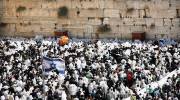
The most recent Hakhel event was in 2015, so the next one takes place in 2022.

As part of the holiday of Sukkot, we eat our meals in a sukkah (an outdoor booth, or hut), and many people even sleep in their sukkah!

We must always count our blessings.

Rabbi Enkin presents an exceptional class about the joyous, action-packed Festival of Sukkot.
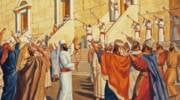
What is it about the water-offering ceremony during Sukkot that inspired the greatest celebration in Jewish history?

The Lulav is the classic symbol throughout Jewish literature of the importance of balancing our priorities in life, which should include caring for our fellow human being.

Rabbi Enkin presents a meaningful, informative (and fun!) class about the holiest day of the year.

Did you know that the Torah commands each person to write their own Torah scroll, with several options available to fulfill this commandment.

The great 10th century sage, Saadia Gaon, compiled a list of 10 interpretations as to what the Shofar represents and why we blow it on Rosh Hashana.

It’s that time of year again! Time for… The Rosh Hashana Webinar! Get ready to learn how to properly observe the holiday of Rosh Hashana – the Jewish New Year – which begins this Sunday night. Discover why we blow 100 shofar blasts (when the Torah seems to require only 9) and why we eat... Read more »

'The hidden things are for God, but the revealed things are for us and for our children forever.' What does Moses mean?

One who repents properly is credited as if he '…went to Jerusalem, rebuilt the Temple, erected the altar, and offered all the required sacrifices.'

The Torah portion of “Ki Tavo” (Deut. 26:1-29:8) includes some heavy discussion about charity, tithing, and helping the less fortunate. In this webinar, Rabbi Enkin presents the Jewish perspective on giving charity, known as “tzedaka.” You will learn how “tzedaka” is addressed in the Torah, the Talmud, and even in the mystical teachings of Kabbala!... Read more »

The offering of the First Fruits provides insight into how we can be happy with what we have.